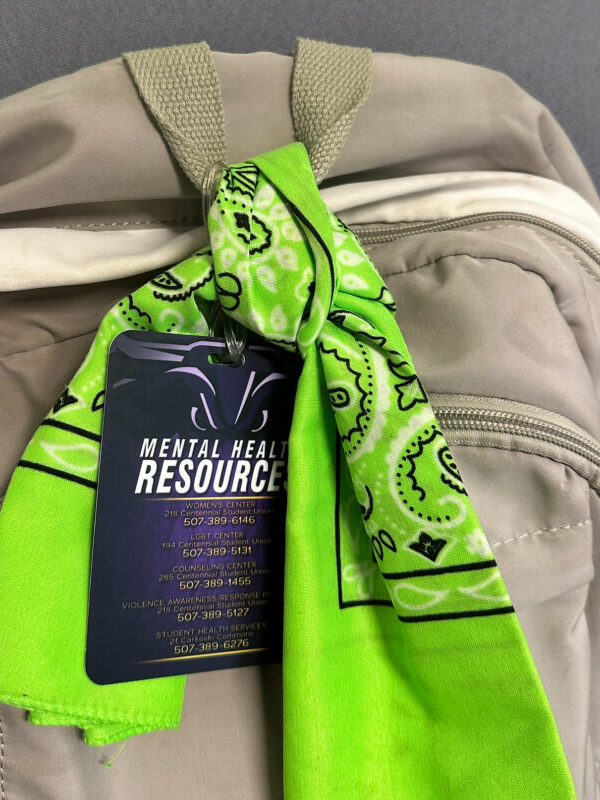By JADELYN JACKSON, CSU Student Staff Writer
Have you ever wondered what the green handkerchiefs that MSU student athletes wear signifies? No, it’s not a fashion statement or a carry-around tissue. It’s a symbol of mental health advocacy.
Each year, the Minnesota State Mankato Student Athlete Advisory Committee (SAAC) has a list of initiatives that they have to advocate on campus. They are mandated and required by the NCAA. Every year, these initiatives have the ability to change, new ones are added, unpopular ones are discarded. However, for over a decade, there has always been one constant initiative; the Mental Health Green Bandana initiative.
Participating MSU students pledge to solidify their support and commitment to helping stomp the stigma frequently associated with mental health. The next step is tying the green bandana to their backpack as a visual reminder.
Kristle Wolcott, Associate Head Softball Coach and MSU SAAC Liaison says that the initiative has a purpose and a meaningful story behind it. The Green Bandana Project was inspired by “Dan’s Bandana Project,” an initiative created on the University of Wisconsin-River Falls campus in 2014 by Dr. Betsy Gerbec. Her concept came after losing her son, Daniel Gerbec, to suicide in 2012, when he was a senior in college.
“Dan’s signature headwear, a bandana, became the primary symbol of the project– signifying that a student carrying a bandana is an advocate for mental health, a trusted source of support, and knowledgeable of mental health and suicide prevention resources available to students,” says Wolcott.
By tying it to their backpack, they are advocating for individuals around them and supporting them on their journey to get help. They are visually telling everyone that they are not alone. Lastly, they become an advocate for mental health and part of the solution.
“I think it’s important to come together in solidarity to advocate for mental health and let everyone know they are not alone. No one is immune to mental health struggles,” says Wolcott.

